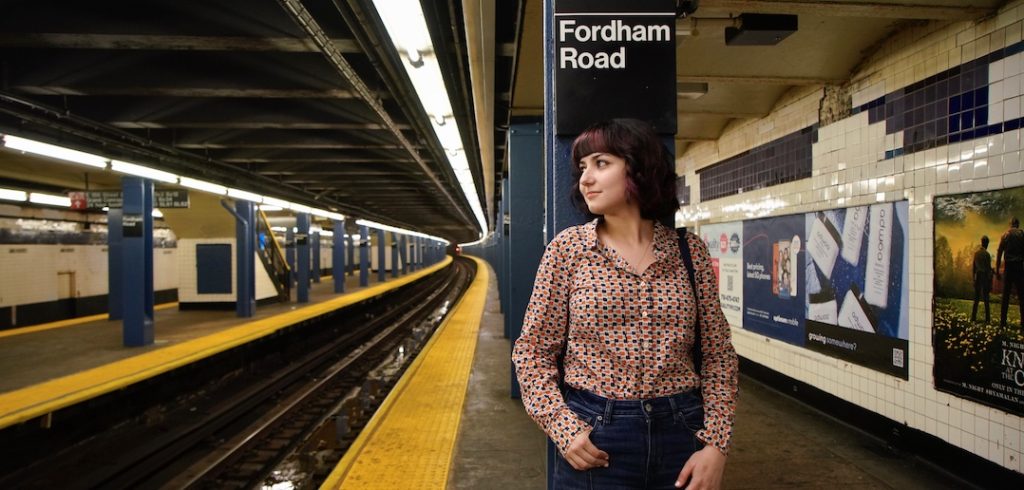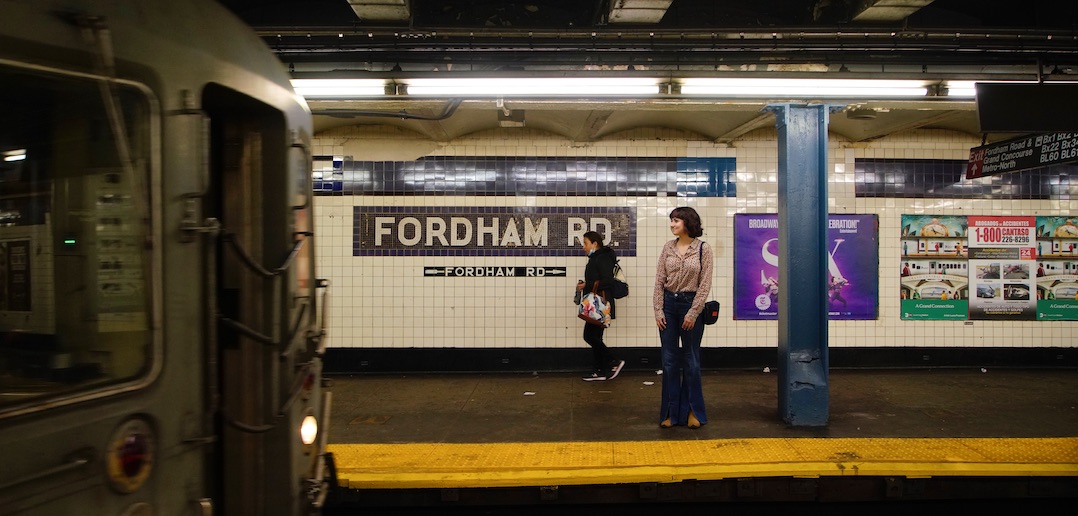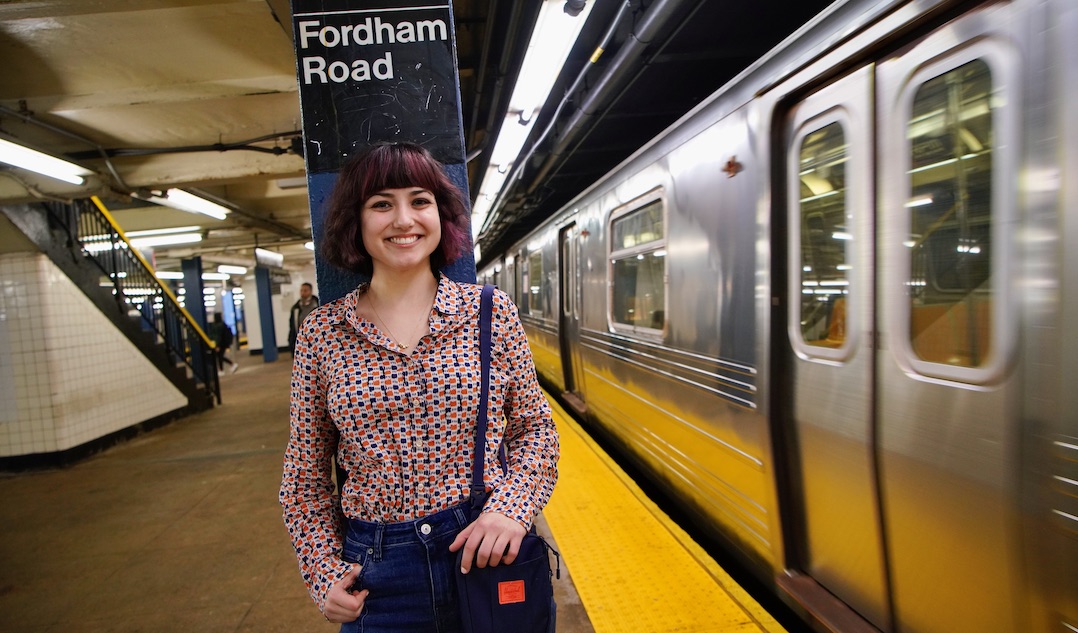An American studies major and a member of the Rose Hill Honors Program, Dziura aims to raise awareness about the experiences of underrepresented and marginalized peoples, particularly those with disabilities.
Dziura, a native of suburban Connecticut who needed a car to travel to most places, said her first time riding the New York City subway was incredible. The problem is that not everyone can use it.
“Only 27% of all subway stations are accessible, meaning ADA compliant, which doesn’t literally always mean accessible. That means that all elevators and escalators are working, that the station is open and has service,” said Dziura, but that often isn’t the case.
Dealing with Her Own Disability
The oldest of four sisters, Dziura learned from an early age how to care for others. As a teenager, she volunteered in local youth programs, where she helped children with dyslexia learn how to read. She also worked as a summer camp counselor with children, some of whom had autism and attention deficit hyperactivity disorder. It was there that she realized something she had suspected for a long time—that she was neurodivergent herself.
“I felt an intrinsic connection to many of those kids. I saw myself in them,” said Dziura, who was diagnosed with obsessive compulsive disorder last year. “But OCD doesn’t make me any less capable of doing anything that I want to do.”
Finding Disability Studies at Fordham
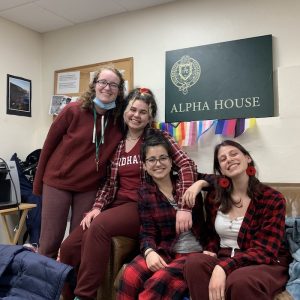
She arrived at Fordham in 2020 and later decided to major in American Studies, a field that blended her interests in English, history, social sciences, and political science. Her academic concentration, Diversity and Difference, also allowed her to take courses related to her interests, including disability law policy and advocacy.
Outside of class, she joined extracurriculars focused on building community. She volunteered at the Bronx Community Foundation, where she worked with community organizers and learned how to run a nonprofit. She helped to plan events with the LGBTQ+ History Month Committee in the Office of Multicultural Affairs, including the upcoming Lavender graduation ceremony for LGBTQ seniors. Most recently, she has been interning at the Lincoln Center for the Performing Arts, where she helped to facilitate free events for people with disabilities and their families and developed strategies to make events more accessible to the public.
A New Policy Proposal on Subway Inaccessibility
Dziura said she discovered disability studies through her honors course Justice I: The American Experience. As part of the course, she developed a semester-long research project on improving accessibility in the NYC subway system.
She wanted to learn more about the system by experiencing it herself. Last year, Dziura and two friends spent seven hours traveling across the subway system in a single day. Although all three are able-bodied, they decided to only visit stations where they could access an elevator or escalator. In total, they were able to visit 12 stations, she said.
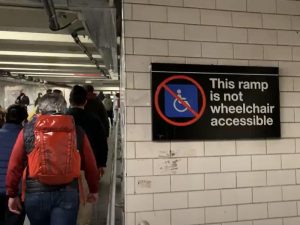
“It’s almost impossible to navigate the city if you need accessible stations. All of the buses are now wheelchair accessible, and there is something called Access-A-Ride, a paratransit service, but it is infamously bad,” Dziura said.
In her policy proposal for her Truman Scholarship application, Dziura focused on another aspect of inaccessibility: the importance of installing tactile strips on platform edges and designing stations with high-contrast colors, which can help guide people with visual impairments.
“As of 2019, there are about 120 stations with platform edges painted yellow but no tactile guide strips because per the ADA, they’re only required for stations of significance like Times Square,” Dziura said. “The MTA has been installing them, but there was a case of a visually impaired man who fell on Brooklyn subway tracks that had yellow paint, but no tactile guide strips.”
Most people are able-bodied, but at any moment, we are two steps away from being disabled, said Dziura.
“Disability also includes temporary disability. If you broke your leg tomorrow, your commute would change. It’s also hard for parents with strollers to navigate the subway,” she said, citing the 2019 case of a mother who died while trying to take her 1-year-old daughter down the stairs in a stroller. “And once you reach a certain age, you will have certain disabilities. Poor sight, poor hearing—or both.”
Dziura now lives on Bathgate Avenue with her Fordham friends. There is a man who often sits on the corner of Bathgate and 189th Street with a blue walker and smiles and waves at her, she said. When she takes out the trash, she also enjoys chatting with her next-door neighbors—longtime residents who have lived in the Bronx for decades.
“One of the coolest parts of living in the Bronx is seeing how people interact with each other. There’s nothing wrong with Manhattan, but when you travel all the way downtown, there’s this air of detachment,” she said. “The Bronx is, and always will be, a community that looks out for each other. I’m grateful to be a part of it.”
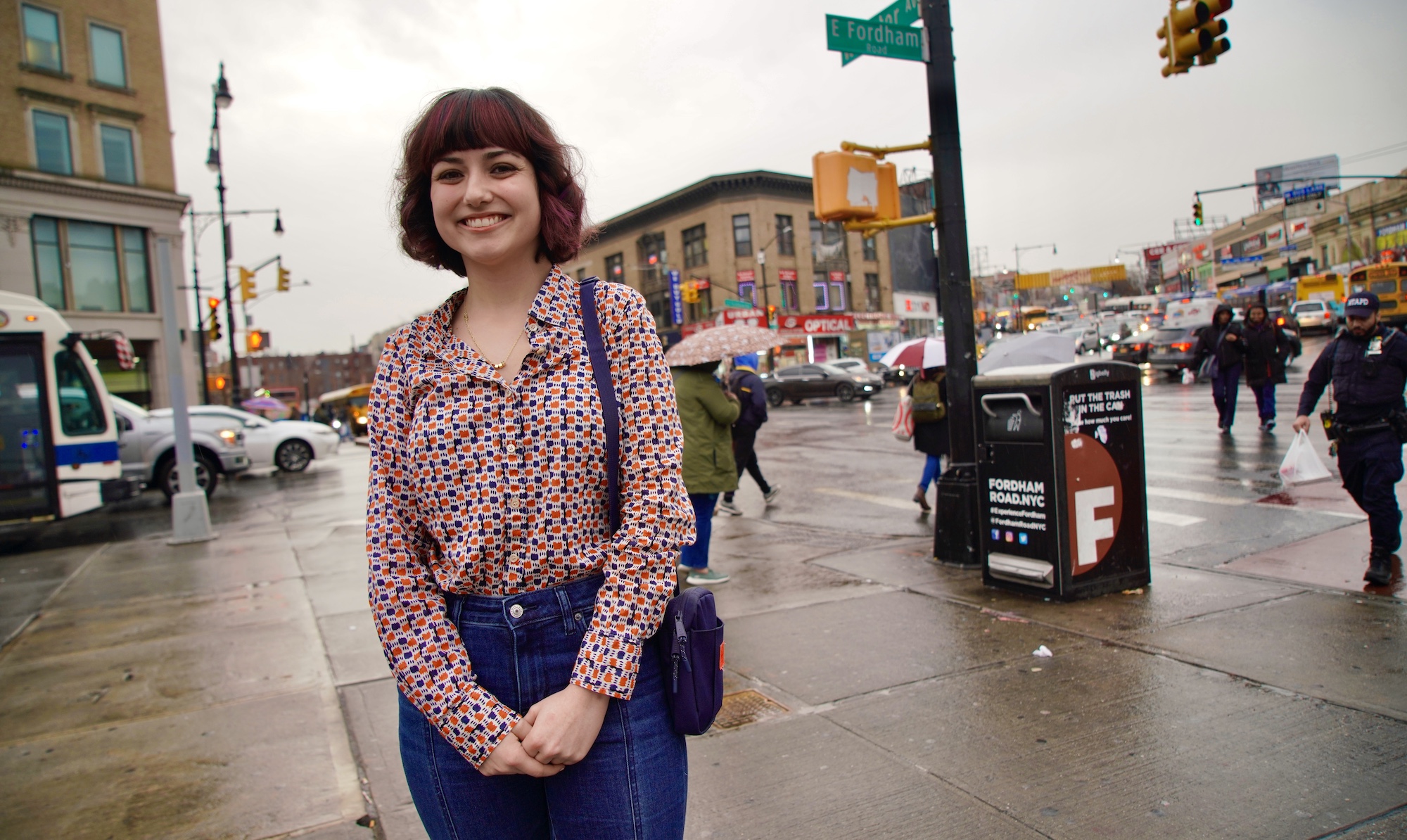
Creating A New World for the Next Generation
Last month, Dziura found out she was named a finalist for the highly competitive Truman Scholarship, a national program that recognizes college students dedicated to public service.
Each year, about 800 students across the country are nominated for the scholarship. A quarter of those students are selected as finalists, and an even smaller number—between 55 and 65—are chosen as winners. Since the scholarship was established in 1975, Fordham has produced nearly a dozen winners. (Fordham’s president, Tania Tetlow, is also a 1991 Truman Scholar herself.) Dziura will find out in April if she is chosen as a winner.
Marisa Iglesias, Ph.D., assistant director of the Office of Prestigious Fellowships and Dziura’s advisor, said she expects big things from the student advocate.
“After speaking with her, you’ll probably see the New York transit system differently,” said Iglesias, who helped Dziura apply for the Truman Fellowship. “I can envision the type of change that Abby will make in 10 years, and it’s going to be a pleasure to watch her not just be a part of the city, but a real, tangible part of it.”
Dziura’s long-term career goal is to lead the NYC Mayor’s Office for People with Disabilities, acting as a liaison between the disability community and the city.
“One of the hardest parts of advocacy work is knowing that you don’t always get to see the end result. Sometimes you’re setting things up for future generations because something can’t be completed for another 20 years. It can be difficult when it feels like you’re working toward an intangible goal,” Dziura said. “But someday, I’d love to see a fully accessible New York subway system.”

